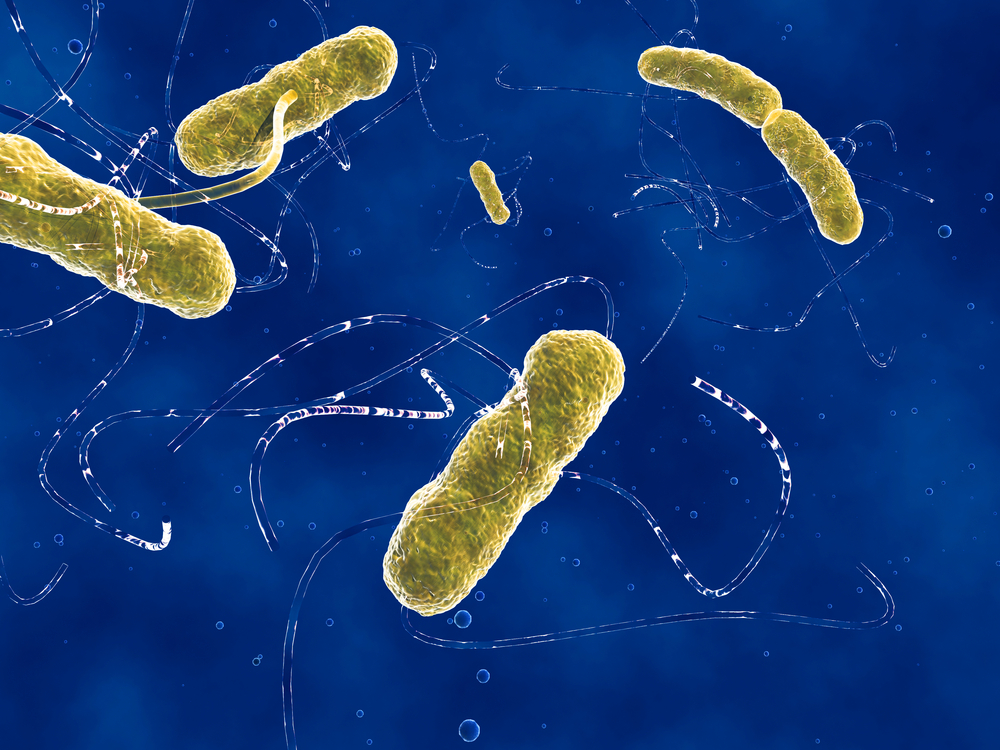Study Suggests Altering Gut Bacteria May Mitigate Lupus Symptoms
Written by |

According to research recently published in the American Society for Microbiology’s journal Applied and Environmental Microbiology, Lactobacillus — a probiotic (beneficial bacteria) species commonly found in yogurt cultures — has been discovered to correlate in the gut of laboratory mouse models, with symptom mitigation in the autoimmune disorder systemic lupus erythematosus in which the body’s immune system dysfunctionally attacks its own healthy tissue, potentially affecting skin, joints, kidneys, the brain, and other organs. On the other hand, presence of another gut-inhabiting bacterium — Lachnospiraceae, a type of Clostridia — correlates with lupus symptom exacerbation. Clostridia was observed to incrase in both early and late stages of the disease.
 “Our results suggest that the same investigation should be performed in human subjects with lupus,” says principal investigator Xin Luo of Virginia Tech at Blacksburg, Virginia in a release.
“Our results suggest that the same investigation should be performed in human subjects with lupus,” says principal investigator Xin Luo of Virginia Tech at Blacksburg, Virginia in a release.
The research paper, “Dynamics of Gut Microbiota in Autoimmune Lupus” (Applied and Environmental Microbiology, 2014; DOI: 10.1128/AEM.02676-14) is coauthored by Research Assistant Professor Husen Zhang of  the Department of Civil and Environmental Engineering at Virginia Tech in Blacksburg, Virginia; Ph.D. Student Xiaofeng Liao and Principal Investigator / Assistant Professor of Immunology Xin M. Luo of the Department of Biomedical Sciences and Pathobiology,
the Department of Civil and Environmental Engineering at Virginia Tech in Blacksburg, Virginia; Ph.D. Student Xiaofeng Liao and Principal Investigator / Assistant Professor of Immunology Xin M. Luo of the Department of Biomedical Sciences and Pathobiology,  Virginia Tech, Blacksburg; and Joshua B. Sparks M.D., of the Virginia Tech Carilion School of Medicine (expected 2015) .
Virginia Tech, Blacksburg; and Joshua B. Sparks M.D., of the Virginia Tech Carilion School of Medicine (expected 2015) .
The researchers note that gut microbiota are recognized as important environmental factors in health maintenance, especially in metabolic and immunological diseases, where disrupted host gut microbiota are often observed in diseased states. However currently little is known regarding the role gut microbiota play in systemic lupus erythematosus.
The scientists investigated effects on the gut microbiome in a murine (mouse) lupus model examining host genetics, sex, age, and dietary intervention. They found that In young, female lupus-prone mice as an analog for women of childbearing age, the demographic with highest lupus risk, they found significant lactobacilli depletion and concomitant increases in Lachnospiraceae and overall diversity compared to age-matched healthy mouse controls. They also observes that the predicted metagenomic profile for lupus-prone mice showed significant bacterial motility enrichment in sporulation-related pathways.
Dietary intervention with retinoic acid to restore lactobacilli that are downregulated in lupus-prone mice correlated with improved symptoms, and predicted metagenomes also showed retinoic acid introduction associated with reversal of many lupus-associated microbial function changes that deviated from a control. Moreover, the gut microbiota in lupus-prone mice were found to be different between sexes, with an overrepresentation of Lachnospiraceae in females associated with an earlier onset of and/or more severe lupus symptoms. The researchers also found an overabundance of Clostridiaceae and Lachnospiraceae, both of which harbor butyrate-producing genera, the gut of lupus-prone mice at specific time points during lupus progression. “These results suggest that the gut bacteria may contribute to lupus, a disease which is nine times as prevalent in women as in men,” says the paper’s first author Husen Zhang.
The coauthors conclude that taken together, their results demonstrate the dynamics of gut microbiota in murine lupus, providing evidence suggestive that introduction of probiotic lactobacilli and retinoic acid as dietary supplements may relieve inflammatory flares in lupus patients.
In additional experimentation, the investigators treated lupus symptoms in mice with either retinoic acid alone or vitamin A plus retinoic acid. “The latter worsened the symptoms surprisingly,” notes Dr. Luo, “because it had been expected to reduce them, and in those mice, Clostridia increased, while Lactobacillus declined. Retinoic acid alone improved the symptoms, with opposite population changes in the gut bacteria.”
While the research suggests, it doesn’t prove that altering the balance of gut microbiota could possibly mitigate lupus. However, Dr. Luo suggests that people with lupus should try eating probiotics supplements containing Lactobacillus and/or foods that also do such as live culture yogurts, to hopefully lessen the severity of lupus flareups. “The use of probiotics, prebiotics, and antibiotics has the potential to alter microbiota dysbiosis, which in turn could improve lupus symptoms,” says co-principal investigator Husen Zhang. “Ultimately, says Dr. Luo, “fecal transplant might prove valuable as a treatm ent for lupus.”
ent for lupus.”
“We were inspired in part to perform this research by a study on type 1 diabetes, which found that that disease is dependent on gut microbiota,” says Dr. Zhang. “Like type 1 diabetes, lupus is an autoimmune disease that is even more prevalent [than type 1 diabetes] in women.”
Sources:
The American Society for Microbiology
Applied and Environmental Microbiology
Virginia Tech
PubMedHealth
Image Credits:
Virginia Tech




